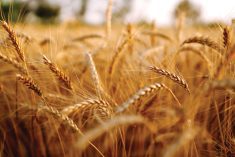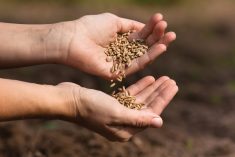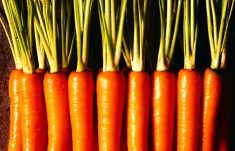The Manitoba Organic Alliance (MOA) says its new checkoff levy on organic cereals, pulses and oilseeds will help fund organic-specific research and extension work.
“It wasn’t felt that the research and development and marketing were actually benefiting organic grain farmers,” MOA project manager Karen Klassen told the Co-operator.
“This is the first organic grain levy that’s in Canada… so it’s pretty exciting for us on that front,” Klassen said. She added that there are other organic levies but this is the first to be mandated.
Read Also

Mazergroup’s Bob Mazer dies
Mazergroup’s Bob Mazer, who helped grow his family’s company into a string of farm equipment dealerships and the main dealer for New Holland machinery in Saskatchewan and Manitoba, died July 6 from cancer.
The province registered the checkoff regulation on August 12, said MOA in an August 16 news release. A majority of certified organic grain producers approved the motion for a 0.5 per cent levy in an April 2020 mail-in ballot.
Effective immediately, organic grain buyers with offices in Manitoba will be required to remit checkoff fees to MOA on a quarterly basis. Buyers that do not have offices in Manitoba will be asked to voluntarily remit the fees.
“This is great news for the Manitoba organic sector that will help to level the playing field for organic farmers in the province,” said Royden Loewen in the news release. Loewen is an organic grain farmer and head of the new Manitoba Organic Development Fund.
The producer-led development fund will steward the collected levies, Klassen explained.
The levy will help address challenges specific to organic growers, said Loewen.
“For instance, this drought year has shown us just how difficult it is to manage weeds while limiting the loss of soil moisture associated with tillage. We need more research and more solutions,” he said.
To date, farmers have paid checkoffs on organic grains, pulses and oilseeds through conventional farming groups like the Manitoba Crop Alliance, said Klassen. If they do nothing, they will continue to do so.
Both the conventional and organic checkoffs are refundable, she added.
Klassen acknowledged that a year of extreme drought is an unfortunate time to take a share of organic farmers’ profits. It was a long-running project. She said MOA will work hard to answer producers’ questions and hope to mitigate future weather challenges.
MOA said at the last official count, there were 233 organic operators in the province, of which 178 are primary producers and 74 are processors. Total organic acreage in the province is 127,597 acres.




















